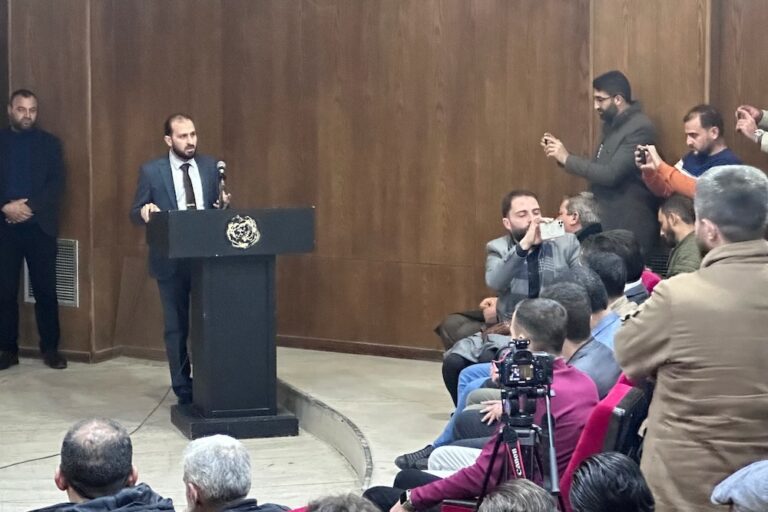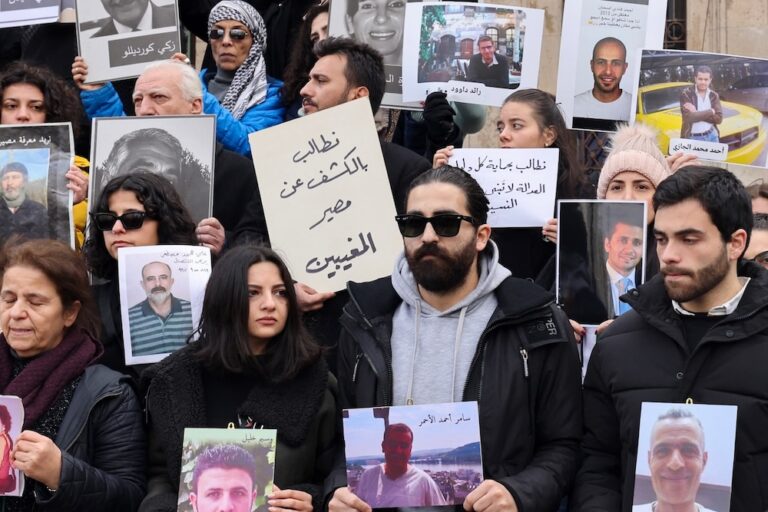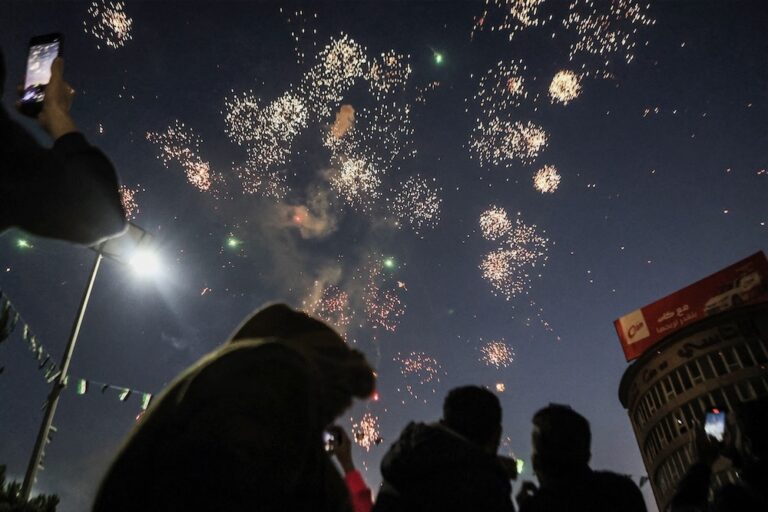A total of three journalists have been killed in Syria in seven days while a spate of kidnappings of Syrian media personnel has continued, in one case in neighbouring Lebanon.
(RSF/IFEX) – 17 August 2012 – A total of three journalists have been killed in Syria in the past seven days while a spate of kidnappings of Syrian media personnel has continued, in one case in neighbouring Lebanon.
“With three dead in a week, the toll from violence against professional and citizen journalists continues to grow at a terrifying rate, just as it does for the civilian population,” Reporters Without Borders said. “From the suburbs of Damascus to the Lebanese capital, journalists are not being spared on any of the Syrian conflict’s fronts or in its regional metastasis.
“We are relieved that six kidnapped journalists were freed this week, but we are deeply concerned about those of whom there is still no news. The spread of such practices is unacceptable. We again urge all of the armed forces and militias taking part in this conflict to respect international law and not target news media.”
Three of the four employees of the pro-government TV station Al-Ikhbariya who were kidnapped by a Free Syrian Army militia on 10 August while covering clashes in a Damascus suburb (see below) were freed yesterday as a result of a Syrian army operation in Al-Tal. The three – Yarah Saleh, Abboud Tabarah and Housam Imad – were received by several government officials after their release.
The circumstances surrounding the death of the fourth crew member, assistant cameraman Hatem Abu Yehiah, on the day of their abduction is unclear. According to Al-Ikhbariya, he was executed by the rebels after being captured. And this was the version given by Saleh after his release.
But this is not what the crew said in filmed statements while being held and, according to the FSA, Yahiah was fatally injured by a mortar round fired by the regular army.
Three Syrian employees of Al-Yassariya TV – Ahmed Haffar, Mohamed Khazaal and Annoud Al-Khatib – were released yesterday by their abductors after being kidnapped the day before in the Lebanese capital of Beirut. The several dozen gunmen who had kidnapped them identified themselves as members of Lebanon’s Al-Moqdad clan.
The clan also kidnapped around 20 other Syrians and a Turkish citizen, threatening to execute them if anything happened to Hassan Al-Moqdad, a clan member being held in Syria by a rebel group that accuses him of being a Hezbollah sniper. The clan finally released some of its hostages, including the TV crew, after deciding they were not connected to the Syrian uprising.
Reporters Without Borders has been unable to obtain any news of Ahmad Sattouf, the Homs-based correspondent of the pro-government TV station Al-Ikhbariya and the Iranian Arabic-language TV station Al-Alam. His family reported on 14 August that he had been missing for “several days.”
Al-Alam quoted witnesses as saying Sattouf was kidnapped by rebels by night as he was returning to his home in the centre of Homs but no rebel group has so far claimed responsibility for his abduction. In a separate development, Al-Alam’s bureau in the Homs district of Ahram was ransacked and part of its equipment was stolen.
Ali Abbas, the head of internal affairs at the government news agency SANA, was shot dead by unidentified gunmen in his home in the Damascus suburb of Jdaidet Artouz on 11 August. Responsibility for his murder was claimed today by the Islamist group Al Nosra, which already claimed the murder of Mohammed Saeed, a TV presenter kidnapped from his Damascus home in mid-July.
Bara’a Yusuf Al-Bushi, a citizen journalist and leading local member of the opposition in the city of Hama, was killed during the shelling of Al-Tal by government forces on 12 August. He was fatally injured by shrapnel while covering heavy fighting between the FSA and regular army.
Since deserting from the regular army in May, he had been very involved in distributing video reports about the anti-government protests and government repression, working with Al-Arabiya and other international TV stations.


